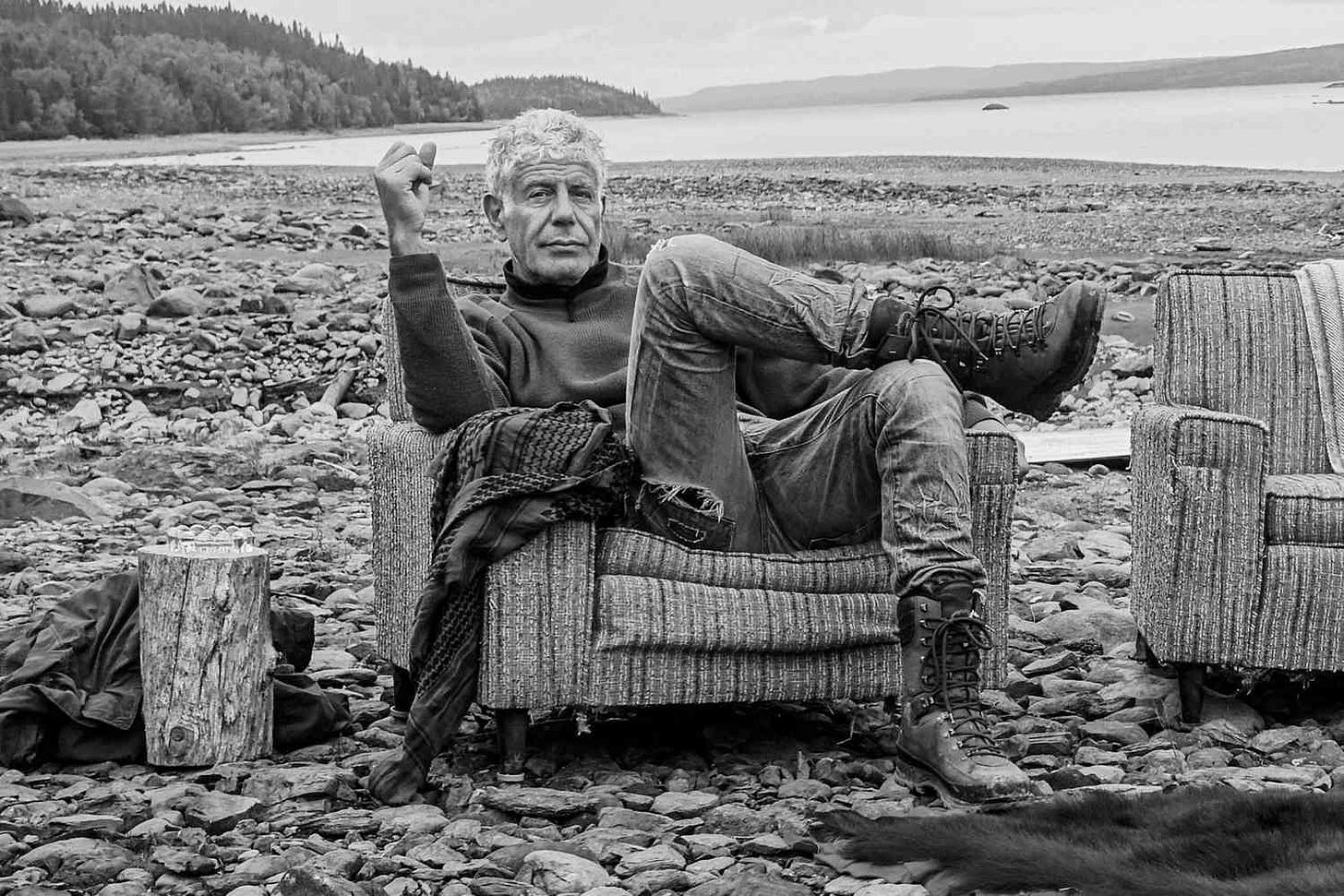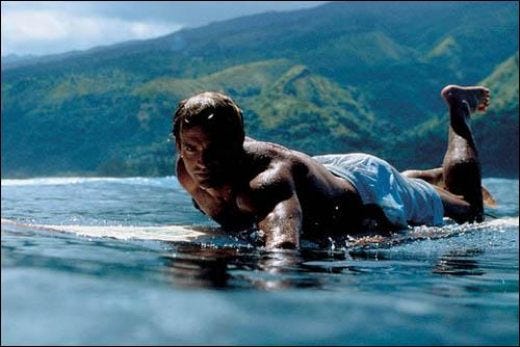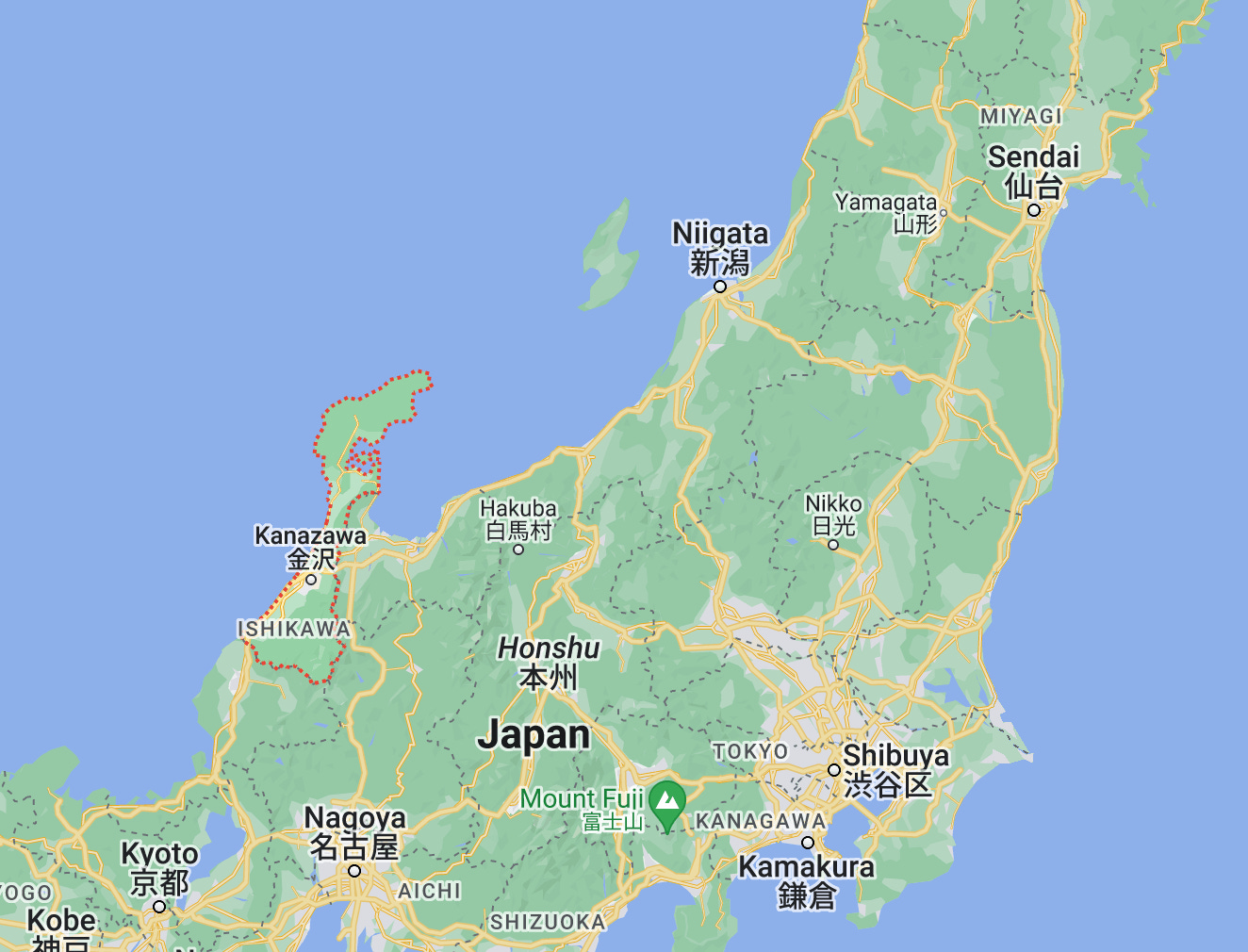Bright Light / Dark Shadow
Kauai to Kowloon
I think about Tony Bourdain a lot. Perhaps more than he deserves. At the very least, too much for someone who didn’t know him. Who didn’t ever speak to him.
Bourdain was many things but my bookwormian sentimentality tempts me to claim him as one of our own, in the same way that we like to claim Steve Rinella. Tony Bourdain was an exceptional writer. Almost perfect prose. Read A Cook’s Tour. Read it twice. There are levels to this game.
I’ve seen every episode of Parts Unknown. Most more than once.
There are at least 5 episodes of that show that are in the pantheon of television. For an inkfinger like me, in the running for greatest pieces of media ever made.
Japan, in the company of Masa Takayama - “The way it always valued beautiful things…”
On the strand in a changing Beirut - “Am I wrong to love this place?”
Discovering the island of Moloka’i with the Supermensch Shep Gordon - “Who gets to be Hawaiian?”
Depressed and alone on the Kowloon ferry - “The best thing, the happiest thing, and yet, the loneliest thing in the world.”
Dining with giants in Lyon, in the company of Bill Buford.
Once in a lifetime, never again.
ROADRUNNER, a film about Tony’s life and work, was produced to honour the man and the legacy he left behind after he ended his own life in Alsace, France - sandwiched somewhere between Germany and Switzerland.
I have a confession to make…I haven’t watched it.
An extreme dichotomy. A paradox. A riddle-me-that kind of thing. But it’s the truth. It’s my truth. For some reason, I just can’t do it.
A short note on the dichotomy of people and their places.
Bright Light / Dark Shadow
Laird Hamilton is a man out of his own time. When most are living lives governed by the alarm clock and an apple watch, Laird lives his life according to the movement of the ocean. According to the tide, and to the surf.
He’s a professional big-wave surfer but, as with many-a-mensch, that title just doesn’t seem to cover it.
It was a technicality - happenstance really - that he wasn’t born on Hawaii, but has lived his entire life there. Growing up a minority in a powerful island culture left it’s mark. Island sensibility is in Laird’s nature. A necessary humility of presence and of place. A hyper-awareness of who you are, where you are and what is expected of you when you’re there.
Islanders are a fiercely proud, durable, productive people - they have to be. But few will tell you that islanders are terribly welcoming. This is probably memetic cultural memory of some kind - when a ship of strangers sailed to your shores it wasn’t always with good intention.
Examples are everywhere. Hawaii has ‘Haole,’ which translates to ‘someone without honour.’ Japan doesn’t have a long-standing culture of immigration (although it may be starting to) and Newfoundland has ‘come from away.’
Kauai is at the north-western tip of the Hawaiian archipelago. The unconquered kingdom. When asked to describe the island he grew up on, Laird said:
‘Bright light, dark shadow.’
When I heard the words ‘Bright light, dark shadow,’ there are several things I could have thought of. But I thought, once again, of Tony Bourdain.
I haven’t watched ROADRUNNER because I can’t. Technically I could. But the figurative fact that I could doesn’t change the literal fact that I can’t. Humans aren’t rational like that. If only we were.
What I loved most about Tony was his revulsion to anything that wasn’t beautiful. That wasn’t real. That wasn’t true. It’s why he fell in love with Ishikawa Prefecture, the land that ‘…always valued beautiful things.’
If it wasn’t beautiful and it wasn’t true, it would send Tony into a deep despair. The despair he felt in Sicily - many of you may remember. An unending, dark hole of imagining that maybe nothing would be beautiful ever again. Where that comes from, I don’t know, but it’s likely part of what led to his singular work.
You can’t write like that without feeling deeply. It’s just not possible.
He left the door open for despair, and he left the door open for great good as well.
Bright light, dark shadow.
When Tony encountered masters, he knew them immediately. He worshipped them, in some way. He bowed down to them. Deferred to them and their life’s work, entirely. He was right to, of course. Mastery is earned and when we are fortunate enough to be in it’s presence, deference is what’s required of us. A respect and a recognition that we are lucky, in some way to even have the chance. I think that has some relation to time. What did these people give to the craft? Everything. They gave everything.
This was never more obvious than in Lyon, in the company of Daniel (another French/NYC icon), seated across from one of the towering French chefs of our time - Paul Bocuse.
Saying Bocuse in France is like saying La Mere Brazier, or Escoffier, or Careme. It’s like saying Maradonna in Argentina. Or da Vinci in Italy. Or Gracie in Brazil.
Impossible to compare.
My contention is a simple one - your light is likely right next door to your shadow. Don’t hide either of them too often. The light might just go out.
“There are only so many bowls of soup.” - Tony Bourdain
See you on the path.
-MG






